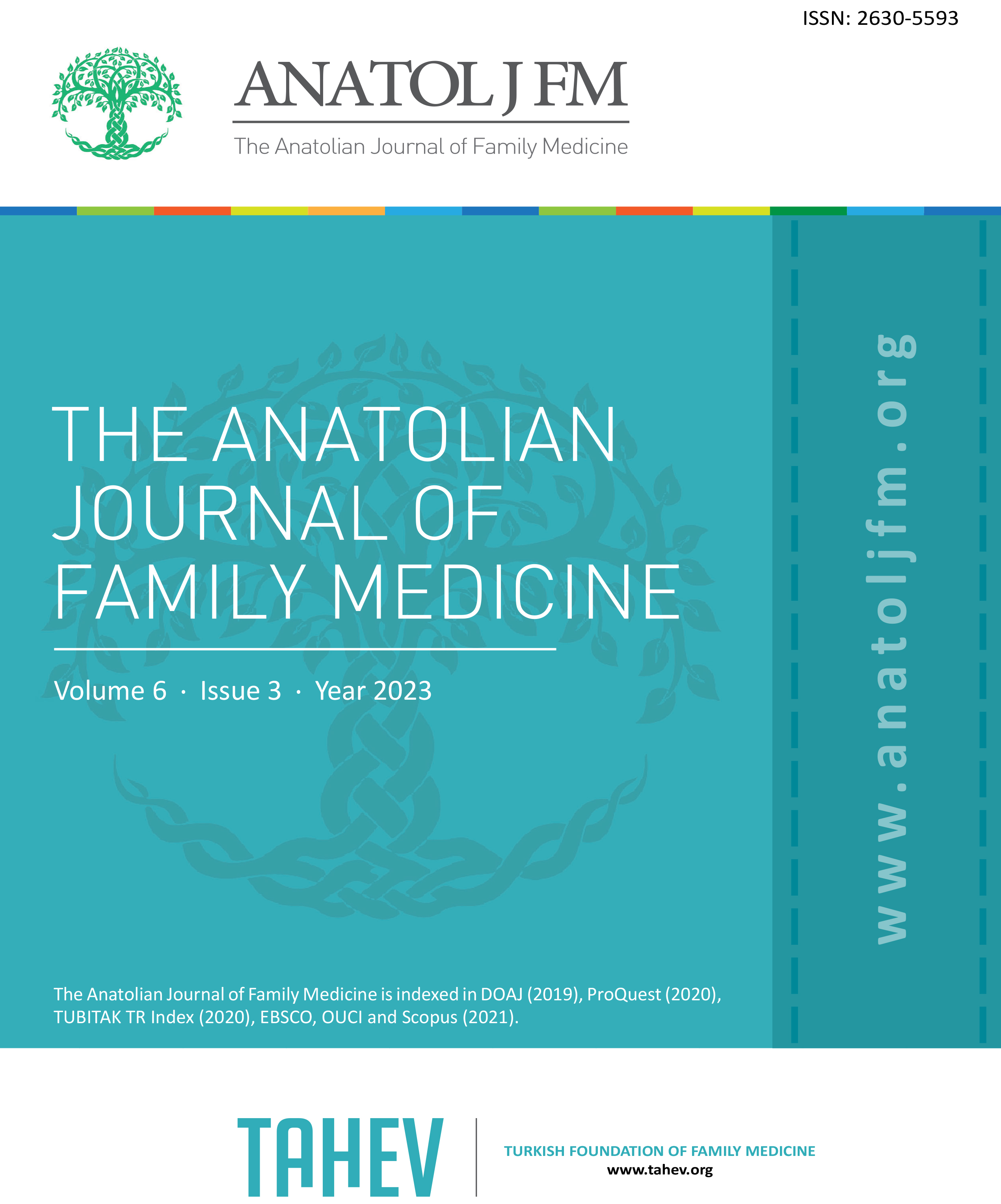Quick Search
The Management of Irritable Bowel Syndrome in Primary Health Care and the Effect of Residency Training: A Cross-Sectional Study
Mustafa Reşat Dabak1, Oya Uygur Bayramiçli2, Sabah Tüzün3, Burak Ölmez4, Şevin Demir5, Gülbüz Sezgin6, Serhat Bor71Department of Family Medicine, University of Health Sciences, Haseki Training and Research Hospital, Istanbul, Türkiye2Department of Gastroenterology, Final International University, Kyrenia, Cyprus
3Department of Family Medicine, Marmara University Pendik Training and Research Hospital, Istanbul, Türkiye
4Sinanpaşa Küçükhüyük Primary Health Care Center, Afyonkarahisar, Türkiye
5Department of Family Medicine, Maltepe University Medical School, Istanbul, Türkiye
6Department of Internal Medicine, Maltepe University Medical School, Istanbul, Türkiye
7Department of Gastroenterology, Ege University Faculty of Medicine, Izmir, Türkiye
INTRODUCTION: This study aims to evaluate the management of irritable bowel syndrome (IBS) by family physicians (FPs) and the effect of residency training on it.
METHODS: FPs who attended the FP training program including academic courses and conferences designed for them between December 2018 and May 2019 were included in the study. Before the training session, all FPs completed a questionnaire to assess their management of IBS in the primary health-care services.
RESULTS: The mean age of the 901 FPs included in the study was 40.8±13.8 years and 707 (79.8%) FPs reported that they managed IBS patients. It was found that 134 (87.6%) of the specialist FPs, 446 (83.8%) of the general practitioner FPs, and 134 (62.6%) of the resident FPs managed the IBS patients (p<0.001). The first pharmacological agents preferred by FPs were found that 816 (90.6%) of the physicians preferred antispasmodics, 69 (7.7%) antidepressants, 31 (3.4%) laxatives, and 9 (1.0%) antidiarrheals. Furthermore, it was found that the duration of prescription of antispasmodic therapy by FPs was 4.0 [2.0] weeks. When IBS management of FPs was evaluated, resident FPs (OR=0.281, 95% CI=0.1230.640, p=0.003) and use of Rome criteria in diagnosis (OR=0.274, 95%CI=2.0275.924, p<0.001) were found to be significant.
DISCUSSION AND CONCLUSION: This study revealed that the FPs who did not manage IBS patients used a defensive medicine strategy due to a lack of training. In addition, this study also highlights the training needs of the FPs, particularly the resident FPs, on IBS.
Corresponding Author: Sabah Tüzün, Türkiye
Manuscript Language: English


















